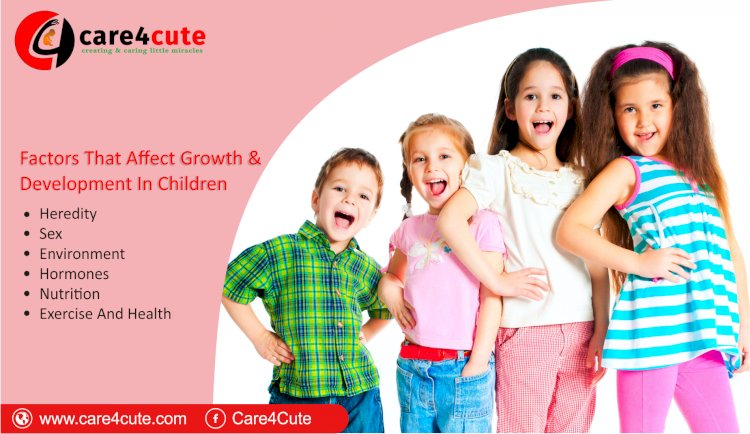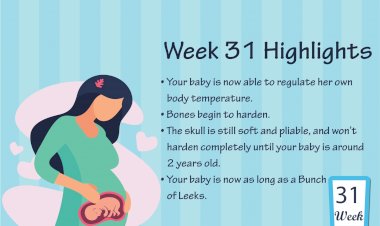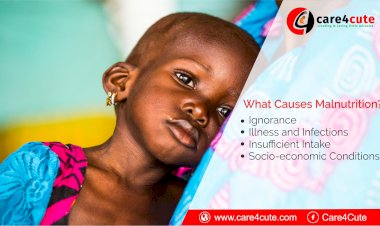Factors That Affect Growth and Development in Children
There are many factors that influence child development. Some factors, such as genetics, those are out of our control and some are in our control.

The growth and development of children depend on both internal and external environmental factors and even on some factors, we do not have any control. Having a good understanding of what children need at each stage of their growth and development helps parents raise their children in a better way.
Major factors that influence the Growth and Development of a Child
In the growth and development of children, both nature and nurture play a vital part. Even though what’s endowed by nature is invariable, nurture tends to make a big difference too. Here are some of the factors affecting children’s growth and development.
Heredity
Heredity is the transmission of physical characteristics and features from parents to children through their genes. It influences all aspects of physical appearance such as height, weight, body structure, skin color, and the color of the eye, the texture of the hair, and even intelligence and aptitudes. Along with this, diseases and conditions such as heart disease, diabetes, obesity, etc., can also be passed from parents to children through genes, thereby affecting the growth and development of the child negatively. However, environmental factors and nurturing can bring the best out of the already present qualities in the genes.
Environment
The environment also plays a significant role in the development of children and it represents the sum total of physical and psychological stimulation the child gain from his surroundings. Some of the environmental factors influencing early childhood development involve the physical surroundings and geographical conditions of the place the child lives in, as well his social environment and relationships with family and peers. It is easy to understand that a well-nurtured child does better than a deprived one; the environment children are constantly immersed in contributes to this.
Sex
The sex (male or female) of the child is another key factor affecting the physical growth and development of any child. Boys and girls grow in dissimilar ways, especially nearing teenage years. Boys tend to be taller and physically stronger as compared to girls. However, girls tend to mature faster during adolescence, while boys mature over a longer period of time.
Exercise and Health
Exercise, in this context, refers to the normal playtime and sports activities which help the body gain an increase in muscular strength and put on bone mass. Accurate exercise helps children grow well and reach milestones on time or sooner. Exercises also keep them healthy and boost their immune system to fights off diseases, particularly if they play outside.
Hormones
Hormones belong to the endocrine system and influence the various functions of our bodies. They are released by different glands that are situated in specific parts of the body to secrete hormones that control body functions. Their functioning is vital for normal physical growth and development in children.
Nutrition
Nutrition is an important part of growth as everything the body needs to build and repair itself comes from the food that we eat. Malnutrition can lower our immune system that can cause deficiency diseases that unfavorably affect the growth and development of children. On the other hand, overeating can lead to obesity and health problems in the long run, such as diabetes and heart disease. A balanced diet that is rich in all kinds of vitamins, minerals, proteins, carbohydrates, and fats is essential for the full development of the brain and body of children.






































Comments (0)